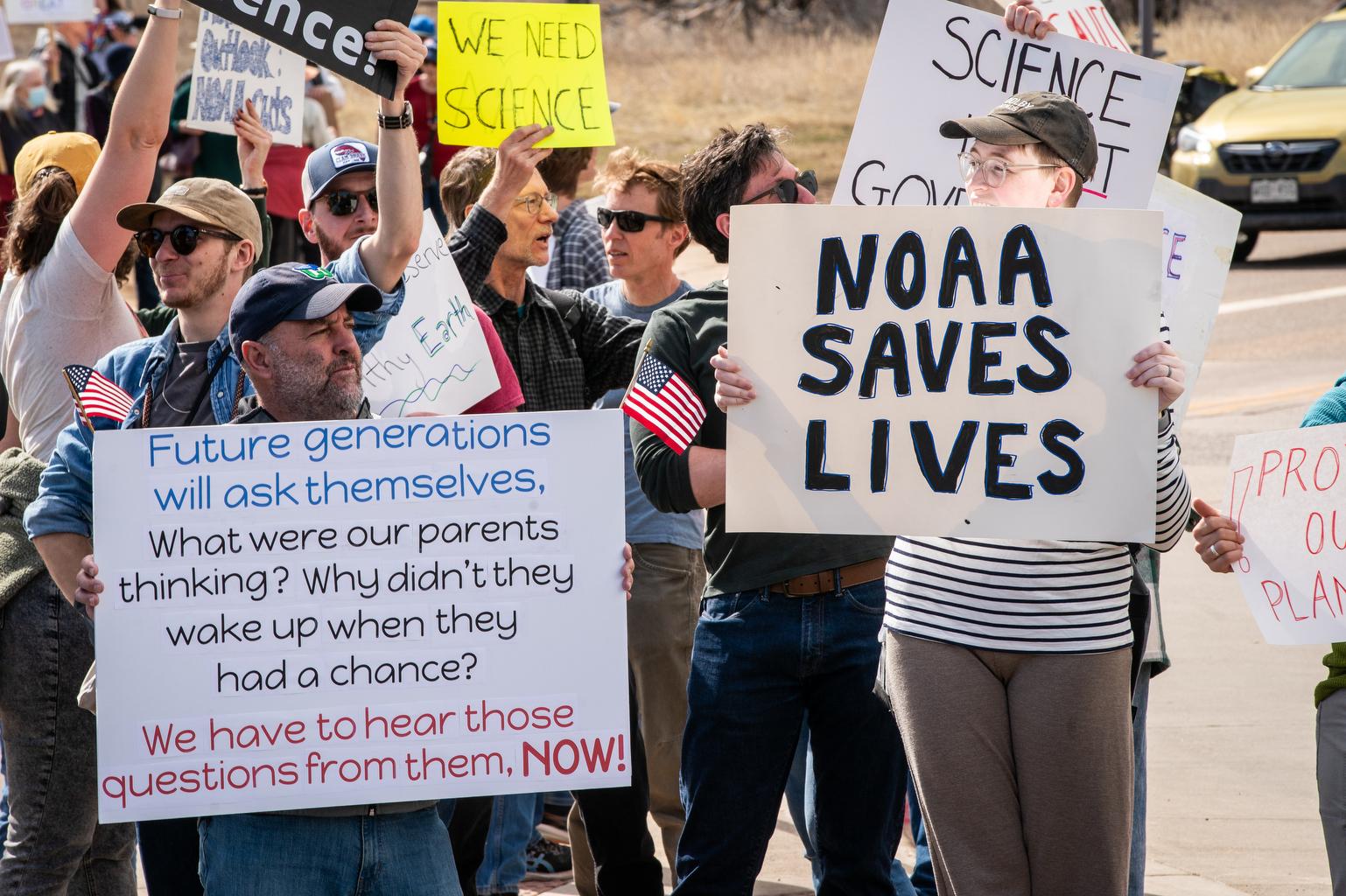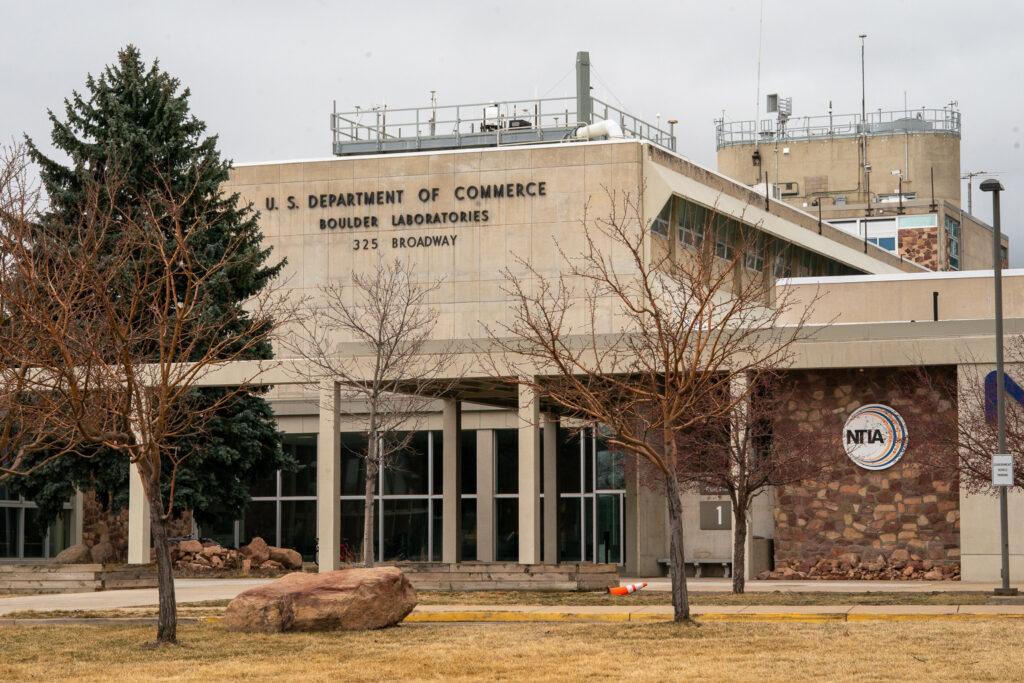
Since 1967, the National Center for Atmospheric Research’s Mesa Laboratory has stood on a hilltop above Boulder, offering an iconic reminder of the scientific quest to better understand Earth’s climate and weather systems.
The federally funded lab has built supercomputers and developed radar tools to help improve weather predictions. It’s also a leading example of a Colorado-based institution swept up in the Trump administration's efforts to shrink federal funding for climate science and related fields.
After initial fights over grant freezes and job cuts, the White House has released funding plans for the next fiscal year beginning in October. NCAR is sponsored by the National Science Foundation, which published its latest budget proposal on May 30. The plan calls for a 40 percent funding cut for the center that employs hundreds of researchers in Boulder.
“A funding reduction of 40 percent would likely mean far-reaching cuts to our programs and labs,” said David Hosansky, an NCAR spokesperson. “It's too soon to say which specific research programs and positions would be affected if Congress were to approve such a budget reduction.”
Other Colorado climate research hubs could face significant cuts under a detailed White House budget request released in early May. The National Oceanic and Atmospheric Administration—the federal agency in charge of weather, climate and ocean predictions—operates four scientific labs at the David Skaggs Research Center in Boulder. Their work includes monitoring global greenhouse gas concentrations, operating flights to track ground-level ozone pollution, a state-of-the-art model to predict wildfire smoke and a project to study the climate impact of melting permafrost.
The Trump administration’s latest detailed budget proposal eliminates $608 million in funding for NOAA’s Office of Oceanic and Atmospheric Research, which oversees the Boulder labs. That aligns with a budget request leaked in April showing the White House hopes to shutter the division and shift some pieces to other parts of the organization.
Congress must consider and approve a final federal budget. If it greenlights the president's plan, John Tayer, the executive director of the Boulder Chamber, said the cuts would devastate critical research and a local economy built around federal labs.
“ It would be a terrible mistake for our country to backtrack on its investments in innovation and research,” Tayer said. “ We will be actively engaged in all of our lobbying efforts to make sure that the activities in Boulder, specifically, and across the country, are supported.”
Federal labs driving the local economy
The federal government never had an overarching plan to concentrate research facilities in Colorado.
Starting in the 1950s, different agencies and academic panels independently decided to build laboratories in the state, said Dan Powers, the executive director of CO-LABS, a nonprofit group advocating for federal research in Colorado.
Today, Powers said the state now boasts the country’s second-highest concentration of federally funded research entities. While that’s a boon to the local economy, it also means Colorado is vulnerable if Congress proceeds with President Trump’s proposed budget.
“You’re not only possibly losing the employees and the revenue that they might spend on restaurants, clothing or car repairs,” Powers said. “You’re also losing their impact on the communities in the ways they volunteer their expertise and participate in other types of civic projects.”
Federal funding supports more than 2,000 jobs related to earth science research in northern Colorado. An NCAR spokesperson confirmed the center employs more than 1,300 people in Boulder and Broomfield.

In addition, Colorado is the only state with two NOAA cooperative institutes—academic and non-profit partnerships built to support the agency’s research efforts. The Cooperative Institute for Research in the Atmosphere (CIRA) works through Colorado State University, and the Cooperative Institute for Research in Environmental Sciences (CIRES) operates at the University of Colorado Boulder.
Steven Miller, the director of CIRA in Fort Collins, said the institute employs roughly 130 people in Boulder and Fort Collins. Waleed Abdalati, the current executive director of CIRES and the former NASA chief scientist, said the institute employs more than 700 people in Boulder. Many work alongside an additional 350 direct federal employees at NOAA’s Colorado labs.
It’s unclear if the White House plans to ax NOAA’s cooperative institutes. A draft White House budget leaked in April suggested the Trump administration would end federal funding for the partnerships. Abdalati, however, said the more recent budget documents don't explicitly address the issue, and he’s hopeful Congress will intervene to save the research alliances.
Meanwhile, some former federal employees are still reeling from earlier cuts enacted through the Department of Government Efficiency, or DOGE.
In February, the Trump administration terminated more than 800 NOAA employees as part of a larger attempt to trim wasteful spending, focusing on newer “probationary” workers with a lower level of job protection. Hundreds of demonstrators gathered outside the agency’s David Skaggs Research Center to protest the layoffs in the weeks afterward.
The federal government briefly reinstated the employees after a federal court blocked the job cuts, then re-fired them when a higher court lifted the decision in April.
Susan Cobb, a NOAA communications specialist who lost her position, said the legal wrangling has left her and other impacted workers in a kind of employment purgatory. She hasn’t received an official termination letter and doesn’t know if the government plans to pay her unused vacation.
“We have no power, we have no documentation, we have no rights. We’re kind of just fighting the system,” Cobb said.
A battle outlined in Project 2025
If the White House enacts its proposed budget, the cuts to federal climate research would carry out a vision laid out in Project 2025, the conservative 900-page policy outline written by the Heritage Foundation, a D.C.-based think tank.
The plan calls for downsizing NOAA’s research division, which oversees the federal research laboratories headquartered in Boulder. The policy document says the office is the source of “climate alarmism” and the majority of its climate-change research should be “disbanded.”
Abdalati rejected any suggestions that climate scientists want to alarm the public. He said their mission remains focused on informing policymakers and helping the public plan for an increasingly volatile climate.
“It's very hard to believe that, in an environment that is changing, we wouldn't wanna do our best to understand those changes,” Abdalati said. “That's directly what is being targeted in some of these budgetary numbers.”
The U.S. The House and Senate are now working on their own proposed budgets for the fiscal year. After the release of the president’s proposal, Congressman Joe Neguse, a Democrat representing Boulder, called the federal laboratories the “crown jewels” of the country’s climate research system.
“Gutting NOAA and its research would be gravely irresponsible and would put our communities at great risk,” Neguse said in a written statement. “Make no mistake, we’re going to continue to push back against the Trump Administration’s disastrous proposals to strip this agency of its funding.”








